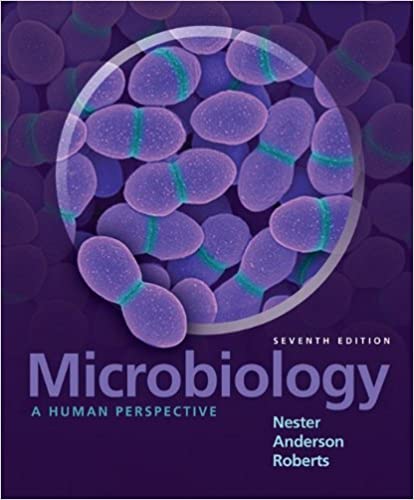
Microbiology: A Human Perspective 7th Edition by Eugene Nester,Martha Nester,Denise Anderson, Evans Roberts
Edition 7ISBN: 978-0077573645
Microbiology: A Human Perspective 7th Edition by Eugene Nester,Martha Nester,Denise Anderson, Evans Roberts
Edition 7ISBN: 978-0077573645 Exercise 2
If you were asked to nominate one of the individuals mentioned in this chapter for the Nobel Prize, who would it be? Make a statement supporting your choice.
Explanation
The theory of spontaneous generation was first proposed by the Greek philosopher Aristotle (384-322 BC). According to this theory, life arises from the non-living matter, if that material contains "pneuma" (means, vital heat). This theory was persisted till 17 th century. Several of the scientists supported and opposed this theory.
Louis Pasteur was a French chemist during the 19 th century. He disproved the theory of spontaneous generation, so I would select this scientist for Nobel Prize. He filtered the air through a gun-cotton filter and observed the presence of microbes on the filter under the microscope.
Pasteur performed an experiment using the swan-neck flasks (long and twisted necks). These flasks can exchange the air inside with the external air, but the microbes from the external air cannot enter into the flask, instead they trapped in the flask of the neck. He sterilized the broth in one of the flasks. With this experiment, he observed that the growth did not occur in the sterile broth.
After that he broke the necks of the flasks and allowed contamination of the broth, microbial growth was observed. Regarding this invention, Pasteur ascertained that "Omne vivum ex vivo" (Life only comes from life).
Louis Pasteur was a French chemist during the 19 th century. He disproved the theory of spontaneous generation, so I would select this scientist for Nobel Prize. He filtered the air through a gun-cotton filter and observed the presence of microbes on the filter under the microscope.
Pasteur performed an experiment using the swan-neck flasks (long and twisted necks). These flasks can exchange the air inside with the external air, but the microbes from the external air cannot enter into the flask, instead they trapped in the flask of the neck. He sterilized the broth in one of the flasks. With this experiment, he observed that the growth did not occur in the sterile broth.
After that he broke the necks of the flasks and allowed contamination of the broth, microbial growth was observed. Regarding this invention, Pasteur ascertained that "Omne vivum ex vivo" (Life only comes from life).
Microbiology: A Human Perspective 7th Edition by Eugene Nester,Martha Nester,Denise Anderson, Evans Roberts
Why don’t you like this exercise?
Other Minimum 8 character and maximum 255 character
Character 255


